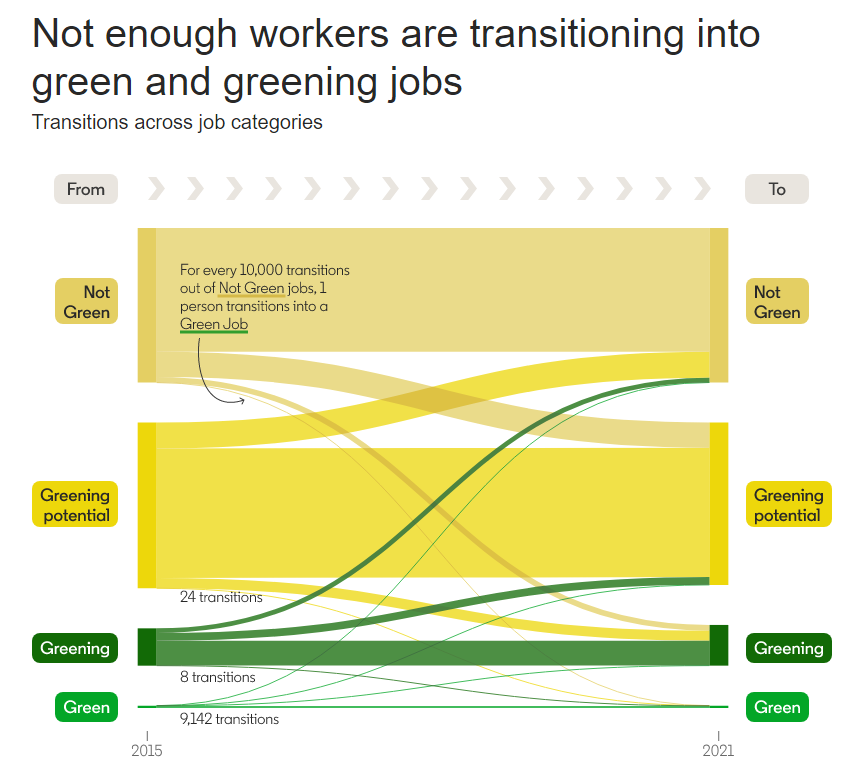Every crisis is an opportunity. The Great Reshuffle and post-COVID recovery present an opportunity for the green transition and activating the jobs. However, LinkedIn’s Global Green Skills Report suggests that we face a number of challenges. This chart shows one of them. The current pace of transitions into green and greening is too slow. According to LinkedIn data, for every 10,000 workers leaving a Not Green job, only 1 moves into a Green job.

One possible accelerator of transition is skills formation. Recent publication by the European Training Foundation “The future of skills: A case study of the agri-food sector in Morocco” provides a glimpse into future of skills. Trends like automation, digitisation, global trade, competition, climate change, sustainable farming and changing consumer behaviour put a pressure on the agri-food sector, which has relied upon traditional technologies and skills.
No doubts, the forthcoming radical changes will affect jobs, by creating new ones or transforming existing ones. For instance, the boundaries between disciplines call for entirely new professions, like environmental economist or nutritionist engineer. In general, these changes imply introduction, use, and maintenance of new technologies, and more interactions with people from different disciplinary or professional backgrounds. From the skills point of view, this mean increase in demand for multi-disciplinary competences and the ability to cooperate and interact with people from different backgrounds.
This could be done by improving collaboration between education providers and companies, enhancing continuing training and reskilling and upskilling, and structuring learning courses around certain value chains.
